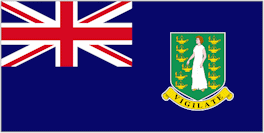British Virgin Islands - Government

Politics of the British Virgin Islands takes place in a framework of a parliamentary representative democratic dependency, whereby the Premier is the head of government, and of a multi-party system. The Governor has oversight of external affairs, defence, internal security, administration of the courts, the public service, elections, and disaster preparedness. Military defence is the responsibility of the United Kingdom.
The British Virgin Islands are an internally self-governing overseas territory of the United Kingdom. The Constitution of the Islands was introduced in 1971 and amended in 1979, 1982, 1991, 1994, 2000 and 2007. Executive power is exercised by the government. Legislative power is vested in both the government and the House of Assembly. The Judiciary is independent of the executive and the legislature.
The British Virgin Islands elects legislature on a territorial level. The House of Assembly (formerly Legislative Council) has 15 members, 13 members elected for a four year term, nine of them in single-seat constituencies and four at large, one ex-officio member and one speaker chosen from outside the council.
The four at large seats are a comparatively recent innovation in British Virgin Islands politics. They were introduced under some pressure from the British Foreign and Commonwealth Office in the mid-1990s. The rationale behind their introduction was that there was a risk that constituency seats can become too closely tied to a particular local figure, and that if a certain number of local figures join the same political party, then the voters have no real choice in selection of their government. Under the proposals any person in the Territory could stand as an at large candidate, and each voter would have four at large votes in addition to their constituency vote. The four at large candidates who received the highest total number of votes would be elected to the Legislative Council.
Crown Colony government was adopted in 1867. The Legislature was reconstituted with six non-elected members, three ex-officio, and three nominated members. In 1871, the Federation of the Leeward Islands was created.
In 1902, the power of legislation for the colony was transferred to the Federal Government of the Leeward Islands. The civil administration was the responsibility of the Commissioner assisted by the executive council, which acted as an advisory body. The Executive Council consisted of two official and two non-official members. It was the Executive Council that formed the nucleus for the eventual reconstitution of legislative government in the Virgin Islands, as it became more influential and politically sophisticated.
In 1938, the Civil League was formed that petitioned for the reinstitution of an elected legislature, but no action was taken on this because of the weak financial situation of the islands and the advent of World War II. The Legislative Council was restored in 1950. It consisted of eight members, two ex-officio, two nominated, and four elected members, with the Commissioner serving as President. Property and literacy qualifications were imposed and only British males over the age of twenty-one years could vote. The islands still remained part of the Leeward Islands Federation.
A new Constitution was brought into effect in 1954, which gave universal suffrage to all British subjects over the age of twenty-one, without property or literacy qualifications. The Legislative Council consisted of six elected members, two ex-officio members, and three official members, with the Administrator as President of the Council.
The Federation of the Leeward Islands was abolished in 1956 and the Federation of the West Indies was created in 1958; however, the Virgin Islands declined to become a member, as it was reluctant to relinquish any of its newly gained powers. In 1960, all constitutional ties with the Leeward Islands were removed, and the British Virgin Islands stood alone as a separate colony, directly responsible to Her Majesty's Secretary of State.
In 1964, further constitutional reform gave members more initiative in the colony's affairs. The ministerial system was introduced. Legislative Council consisted of seven elected and three non-elected members. Executive Council, the advisory body, consisted of three elected and two non-elected members. The Administrator remained Head of Government and was responsible for Finance, Law and Order, External Affairs and the Civil Service. In 1970, the Administrator became known as the Governor, seeking and acting on the advice of the Executive Council.
Further constitutional reforms, in 1979, lowered the voting age to eighteen, and increased the elected members of the Council to nine. 1980 saw the introduction of the Social Services Ordinance, providing basic social security benefits to all who contributed to the scheme. The British Nationality Act of 1981 made British Virgin Islanders citizens of a British Dependent Territory.
In 1998, a revised Constitution provided more equitable representation. The number of members of the Legislative Council was increased to thirteen, with nine district members, and four Territorial-at-large members.
Further constitutional change in 2000 increased the number of ministers to five. The Government has been determined in its efforts to increase the prosperity of the islands and the well being of its people. By providing and improving the necessary infrastructures, it has brought the people of the Virgin Islands into the second millenium ready to take full advantage of the era of information technology.
A new constitution was made in 2007 (the Virgin Islands Constitution Order 2007) and came into force after the Legislative Council (the former name of the House of Assembly) was dissolved for the 2007 general election.
|
NEWSLETTER
|
| Join the GlobalSecurity.org mailing list |
|
|
|

